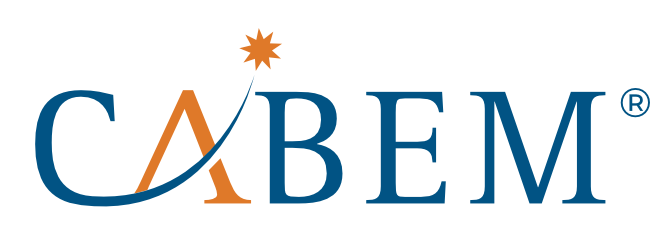Unlocking Competency Management to Supercharge Your Industry
Competency management is like the secret sauce for organizations looking to achieve excellence. It’s all about ensuring that your team has the right skills, knowledge, and behaviors to meet your business goals. As we head into 2024, having a robust competency management system in place is crucial.
Competency Management provides a systematic and structured approach to talent management and development, aligning individual skills and behaviors with organizational goals and requirements. By clearly defining the key competencies and proficiency levels needed for success, the framework sets clear expectations and standards for performance. It guides recruitment and selection processes, ensuring that candidates possess the necessary skills and capabilities.
A competency management framework serves as a foundation for performance management, providing a common language to evaluate and provide feedback to employees. It supports learning and development initiatives, enabling targeted training and career development plans based on identified competency gaps. Moreover, the competency framework promotes consistency, fairness, and transparency in talent management processes, fostering employee engagement and motivation. Now, let’s look at opportunities on the horizon to make competency management even better in 2024. This blog will examine how to optimize competency management, as well as specific tips for manufacturing, law enforcement, and healthcare industries.
Optimizing Competency Management in 2024:
1. AI-Powered Insights:
AI-powered insights in competency management leverage the capabilities of Artificial Intelligence (AI) to meticulously analyze vast volumes of data related to employee competencies. By employing advanced algorithms and machine learning techniques, AI can identify patterns, trends, and correlations within this data, offering invaluable insights into the strengths, weaknesses, and skill sets of individual employees or teams. These insights empower organizations to make more informed and strategic decisions regarding talent development, recruitment, training programs, and workforce planning. Moreover, by swiftly recognizing skill gaps and areas of improvement, AI facilitates agility within organizations, enabling them to adapt quickly to evolving industry demands and market changes. Ultimately, harnessing AI in competency management not only enhances decision-making processes but also fosters more agile, adaptable, and competitive organizations in today’s dynamic business landscape.
2. Personalized Learning Paths:
In 2024, personalized learning paths in competency management signify a transformative shift from traditional, uniform training approaches to a more customized and dynamic learning experience for employees. Leveraging sophisticated AI algorithms and data analytics, organizations can now delve deep into individual employees’ competencies, learning styles, and performance metrics. By doing so, they can craft bespoke training and development plans that cater specifically to each employee’s unique strengths, weaknesses, and skill gaps. This departure from the “one-size-fits-all” methodology allows for tailored learning experiences that resonate better with employees, maximizing engagement and knowledge retention. These personalized learning paths not only boost employee satisfaction by aligning training with individual goals but also enhance overall productivity and performance across the organization. As a result, organizations can expect higher employee motivation, improved skill development, and ultimately, a more agile and competitive workforce capable of navigating the complexities of the contemporary business landscape.
3. Remote Competency Assessments:
Remote competency assessments in competency management have become increasingly prevalent due to the widespread adoption of remote work as the new standard. This shift has revolutionized the way organizations evaluate and measure employee competencies. The transition to remote assessments has facilitated greater flexibility, allowing evaluations to occur irrespective of geographical constraints. With the aid of digital tools, video conferencing, and specialized assessment software, businesses can seamlessly conduct competency assessments from anywhere in the world. This transition to remote assessments ensures business continuity even in challenging times, such as during pandemics or unforeseen disruptions. Moreover, remote assessments offer a level of convenience and flexibility for both employees and assessors, eliminating the need for in-person evaluations and allowing for more efficient use of time and resources. This evolution not only ensures ongoing talent development but also promotes a more adaptable and resilient approach to competency management, enabling organizations to thrive in an increasingly remote and dynamic work environment.
4. Integration with HR Tech:
Integration with HR tech in competency management involves the seamless incorporation of competency-related processes, data, and tools into an organization’s existing suite of HR technologies. This integration aims to create a more cohesive and user-friendly experience for HR professionals, managers, and employees involved in competency-related activities. By integrating competency management tools with existing HR systems such as talent management software, learning management systems (LMS), performance management platforms, and HRIS (Human Resources Information Systems), organizations can streamline various aspects of talent development and management.
By integrating with HR tech, organizations can leverage the power of automation and analytics. This allows for more accurate identification of skill gaps, personalized learning paths, and targeted development initiatives based on individual or team competencies. As a result, the workforce becomes more agile and adaptable, aligning skill development with organizational goals.
5. Continuous Feedback Loops:
In 2024, continuous feedback loops in competency management represent a pivotal shift towards ongoing and real-time feedback mechanisms designed to support employees in their journey of skill enhancement and competency development. These feedback loops are structured systems that facilitate the consistent exchange of insights, assessments, and suggestions between employees, managers, peers, and even AI-powered tools.
Continuous feedback loops in competency management empower employees to take ownership of their development by providing them with actionable insights and personalized recommendations for skill enhancement. This iterative process not only supports individual growth but also contributes to a culture of learning and collaboration within the organization.
In 2024, it’s all about optimizing competency frameworks to supercharge your operations. Let’s dive into how this could be a game-changer for your industry.
For Manufacturing Companies: Elevate Your Competency Game in 2024!
Improved Operational Efficiency – Imagine smoother production lines, reduced bottlenecks, and fewer hiccups in your manufacturing process. That’s what an optimized competency framework can offer. With the right skills in place, your team can work like a well-oiled machine, leading to increased efficiency and lower production costs.
Reduced Downtime – Downtime is the enemy of productivity. When your employees have the right competencies, they can troubleshoot issues faster and keep your machinery running smoothly. Less downtime means more output, happier customers, and a healthier bottom line.
Enhanced Product Quality – Quality control is non-negotiable in manufacturing. Competency optimization ensures that your employees are trained to maintain and improve product quality.
Safer Workplaces – Safety should always be a top priority. Competency management helps ensure that your team has the skills and knowledge needed to work safely. Fewer accidents mean fewer disruptions and a better working environment for everyone.
For Law Enforcement: Upgrading CJIS Management in 2024
Streamlined CJIS Compliance – Criminal Justice Information Services (CJIS) compliance is no joke. But with the right competency management system, you can streamline the process. Ensure your officers are up to date with the latest CJIS standards, reducing compliance headaches.
Enhanced Data Security – Data breaches are a nightmare, especially for law enforcement agencies. Competency optimization can help your team become data security experts, safeguarding sensitive information and maintaining public trust.
Better-Trained Officers – Well-trained officers are a cornerstone of effective law enforcement. Competency management allows you to tailor training programs to individual needs, ensuring your team is always at the top of their game.
Stronger Public Trust – When your community sees that your officers are highly competent, public trust soars. That trust is invaluable when it comes to building strong relationships and ensuring community safety.
For Healthcare Companies and Credentialing: Transform Your Healthcare Workforce in 2024
Faster and More Accurate Credentialing – Credentialing can be a tedious process, but it doesn’t have to be. Competency optimization ensures that your healthcare professionals meet the necessary qualifications quickly and accurately, reducing administrative burdens.
Enhanced Patient Care – Competent healthcare professionals mean better patient care. By aligning competencies with patient needs, you can provide top-tier medical services, leading to improved patient outcomes and satisfaction.
Regulatory Compliance – Healthcare is a highly regulated industry, and non-compliance can be costly. Competency management helps you stay on top of ever-evolving regulations, reducing the risk of penalties and reputation damage.
Increased Workforce Satisfaction – Happy employees are more productive and less likely to leave. When your healthcare professionals know that their competencies are recognized and developed, job satisfaction soars.
As we step into 2024, the opportunities to optimize competency frameworks are vast and exciting. Whether you’re in manufacturing, law enforcement, or healthcare, embracing these changes can give your organization a competitive edge. So, gear up, adapt, and stay ahead of the game in the ever-evolving world of competency management.
Keep an eye on these trends and remember that optimizing competency frameworks isn’t just a choice—it’s a strategic imperative. Here’s to a successful 2024 filled with growth, innovation, and competency excellence! To learn more about competency management in 2024, visit our website at CABEM Technologies.

